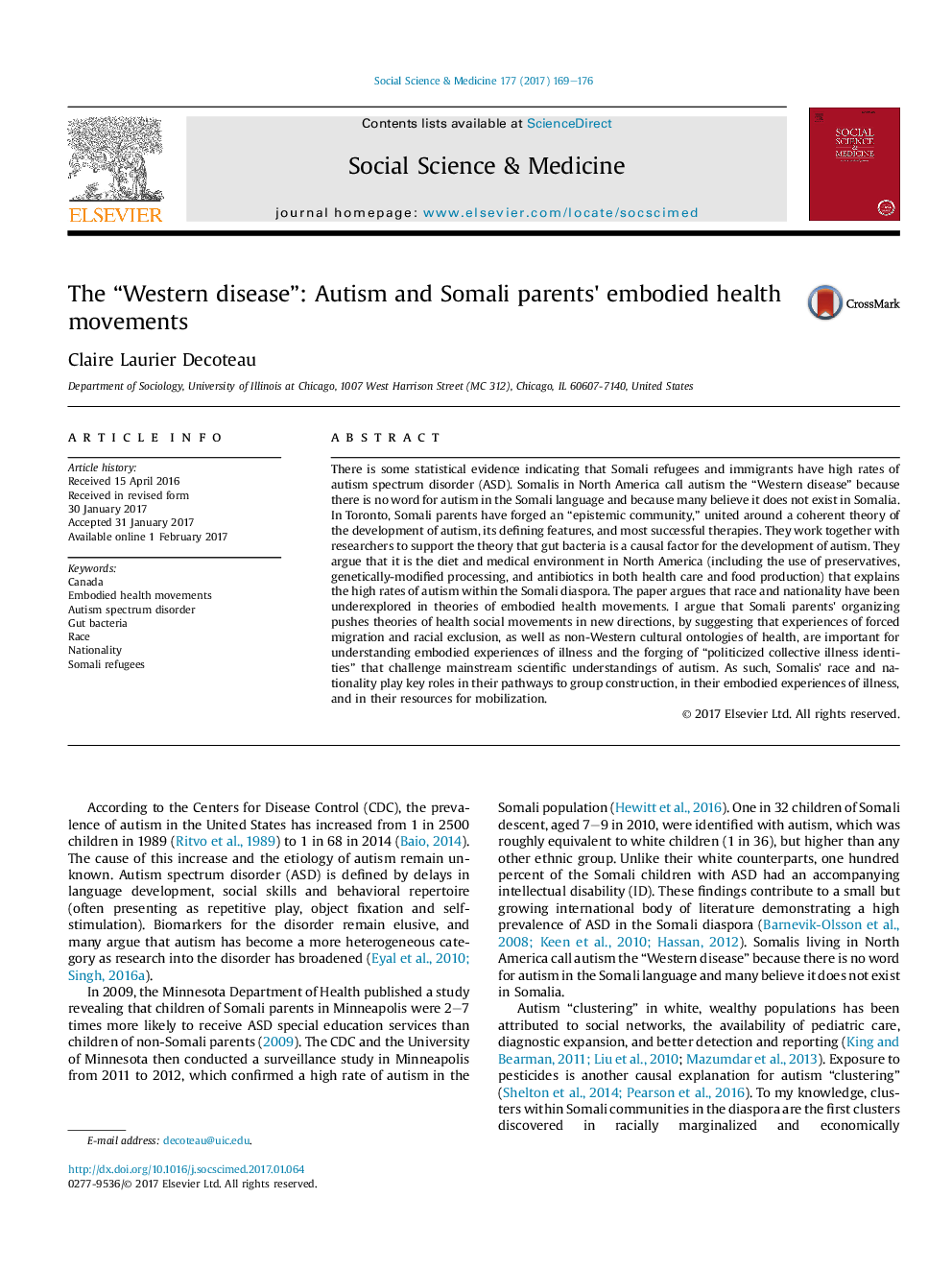| کد مقاله | کد نشریه | سال انتشار | مقاله انگلیسی | نسخه تمام متن |
|---|---|---|---|---|
| 5046723 | 1475992 | 2017 | 8 صفحه PDF | دانلود رایگان |
• Embodied health movement scholarship undertheorizes race and nationality.
• Examines embodied health movements of Somali parents of children with autism.
• Race/nationality shape group formation, illness experience and movement organizing.
There is some statistical evidence indicating that Somali refugees and immigrants have high rates of autism spectrum disorder (ASD). Somalis in North America call autism the “Western disease” because there is no word for autism in the Somali language and because many believe it does not exist in Somalia. In Toronto, Somali parents have forged an “epistemic community,” united around a coherent theory of the development of autism, its defining features, and most successful therapies. They work together with researchers to support the theory that gut bacteria is a causal factor for the development of autism. They argue that it is the diet and medical environment in North America (including the use of preservatives, genetically-modified processing, and antibiotics in both health care and food production) that explains the high rates of autism within the Somali diaspora. The paper argues that race and nationality have been underexplored in theories of embodied health movements. I argue that Somali parents' organizing pushes theories of health social movements in new directions, by suggesting that experiences of forced migration and racial exclusion, as well as non-Western cultural ontologies of health, are important for understanding embodied experiences of illness and the forging of “politicized collective illness identities” that challenge mainstream scientific understandings of autism. As such, Somalis' race and nationality play key roles in their pathways to group construction, in their embodied experiences of illness, and in their resources for mobilization.
Journal: Social Science & Medicine - Volume 177, March 2017, Pages 169–176
